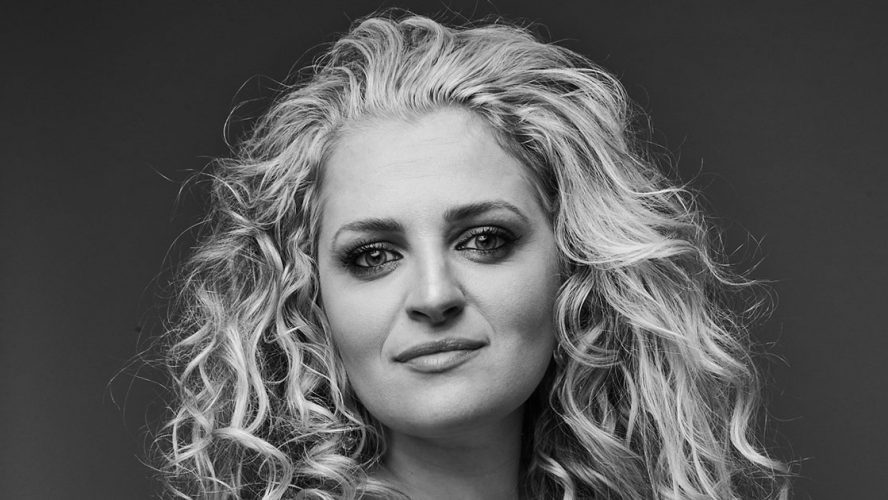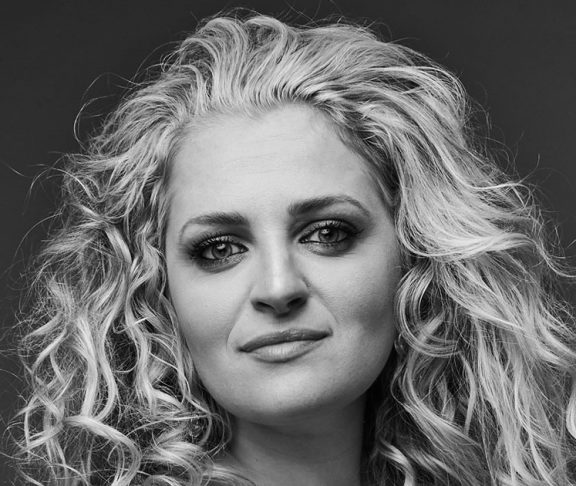Ali Stroker is tired of the word “inspirational.”
“People tell me all the time, ‛you’re so inspirational,’” the Tony Award-winning Broadway star said. “And that is such a nice thing to say! But then you want to ask them, ‛what else do you see?’”
Stroker, who was the first woman who uses a wheelchair for mobility to appear in a Broadway production — and the first to win a Tony Award (for her performance in “Oklahoma!”) — wants to change the conversation around people with disabilities.
“I was not raised to look at my disability as a limitation,” she said. “I never felt limited by my disability — I felt limited with certain people because they were looking at my limitations.”
Get involved and learn how you can help find tomorrow’s cure, today.
Not that different
Stroker suffered a spinal cord injury at the age of 2 that paralyzed her from the chest down. That didn’t stop her from starring in school musicals in high school, becoming class president, or breaking into Broadway.
“Disability isn’t that different,” she said. “Disability affects 1 in 5 Americans. I’m interested in the conversation around how disability can bring beauty, awareness, and new perspectives.”
That was part of the reason she was excited by the challenge of joining the revival of “Oklahoma!”.
“One of the things that’s happened around creating content with disabled people is that the story has to be about the disability — it absolutely does not,” Stroker said. “As an activist, I think confronting our discomfort and casting disability where it’s not necessarily written in is such an opportunity, because it puts our audience in a story where somebody has a disability — but it’s not the story.”
Struggle and self-care
For anyone dealing with a disability and working toward a dream, Stroker points out that everyone struggles, whether they have a disability or not.
“I know exactly what it was like to be uncomfortable in my own skin,” she said. “If your disability is something you’re struggling with accepting, that’s okay. Surround yourself with great people that love you and accept you. Seek out the things that make you happy. Find your joy, whatever that might be, because the one thing I know for sure is that joy and love win.”
Stroker sees a lot of positive change.
“We’re in this beautiful transition and movement in the world,” she said. “People are becoming allies, people are speaking out about the things they care about.”
At the same time, being an ally means letting people with disabilities have their voice.
“Allow disabled people to speak for themselves,” she urged. “In so many situations, people have looked to my boyfriend, to my dad, my mom, my sister, my friend, for the answer to a question that was for me.”
For Stroker, the spotlight on her is a chance to change how disability is perceived and presented.
“Looking back, it happens all the time where the story is a person with a disability who is the victim, and they need saving,” she said. “Or the person with a disability just wants out of their circumstances. Those stories might be someone’s truth, but those narratives are going to influence other people with disabilities.
Cures and treatments for paralysis are within reach. Help us change the lives of millions.
“I remember growing up, I never saw a love story with a woman in a wheelchair. I was always scared of never being able to find that and have that story in my own life because I didn’t see it anywhere. I didn’t know if it was possible.”
Now, though, there’s a chance to make a difference.
“The entertainment industry has an opportunity to expose the world to disability,” Stroker said, “and I feel very strongly about having a voice in it.”


